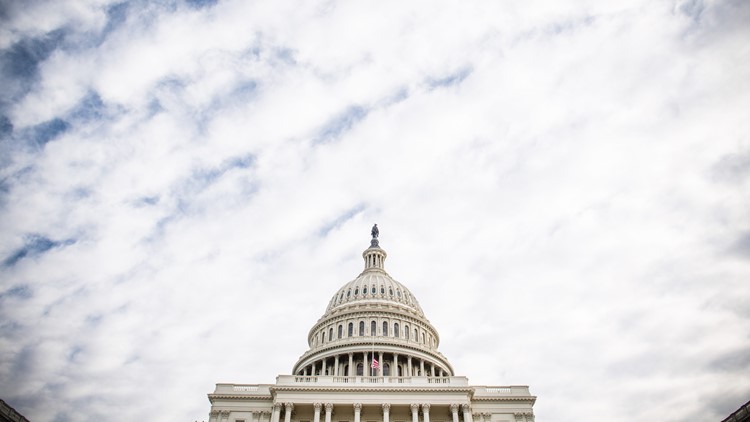This story was previously published on Jan. 22 and updated on Dec. 21.
President Donald Trump has called on the Senate to use the "nuclear option" in order to pass legislation that would fund the federal government – and end the partial shutdown.
Trump urged Senate Majority Leader Mitch McConnell to "use the Nuclear Option and get it done!" in a tweet on Friday morning, ahead of the midnight deadline to pass the legislation.
What does any of this actually mean? Here's a breakdown.
What is the nuclear option?
Simply put, the nuclear option means you need a simple majority to move forward on something. In the 100-person Senate, that means 51 votes would be enough to pass a bill.
How is that different than what happens already?
Under Senate rules, most legislation requires 60 votes to take up a bill, in what's known as a "cloture" vote.
That's why having bipartisan support for legislation is important. Currently, the makeup of the Senate is 51 Republicans, 47 Democrats and two Independents (who caucus and generally vote with the Democrats).
What does 'moving it forward' really mean, though?
A cloture vote is not a final vote on the bill itself. It's a vote to limit debate on a piece of legislation, which then allows the Senate majority to schedule a vote on the actual bill.
If they don't hit the 60-vote threshold for cloture, the minority party can filibuster a bill, which essentially prevents it from moving forward (think of that famous scene with Jimmy Stewart in Mr. Smith Goes to Washington). The minority party can hold the floor with prolonged speeches to delay votes. Note: Filibusters don't really happen on the Senate floor anymore, since the mere threat of a filibuster stops a bill in its tracks.
So what would it take for Republicans to go nuclear?
They would have to change the Senate rules (which would only require a simple majority).
But haven't they 'gone nuclear' before?
Yes. But not on legislation.
Think back to 2013, when the Democrats were in charge of the Senate. Republican senators kept blocking then-President Obama's judicial nominees. Then-Senate Majority Leader Harry Reid of Nevada grew frustrated and convinced his fellow Democrats to change the rules, allowing for lower court nominees to move forward with simple majority votes.
Then, nearly a year ago, the Republicans, now the majority party, changed the rules again to allow Supreme Court nominees to move forward with approval from only a simple majority. This led to the confirmation of Supreme Court Justice Neil Gorsuch.
How does this affect the shutdown?
On Thursday night, House Republicans used their majority to passed a spending bill to keep the government open that included a $5 billion fund for border security. The Senate is expected to vote on the bill on Friday.
Final question: Will Republicans actually 'go nuclear' on this?
Probably not. Despite prodding from the president, that decision rests with Senate Majority Leader McConnell, and he has repeatedly said he doesn't want to invoke the nuclear option on legislation.
It essentially takes away power from the minority party, and no one — Democrat or Republican — wants to be responsible for that (especially since the power in the Senate can flip with every election).
Contributing: Erin Kelly, USA Today and Lindsay Maizland, TEGNA



